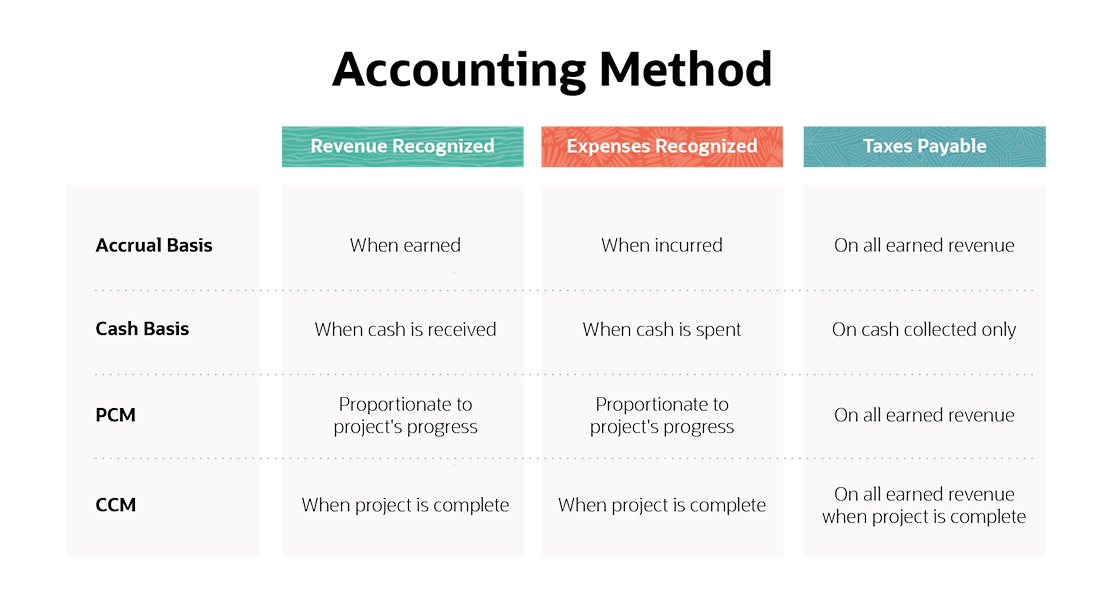Understanding the Role of Construction Accounting in Effective Financial Management
Understanding the Role of Construction Accounting in Effective Financial Management
Blog Article
Recognizing the Significance of Building And Construction Bookkeeping for Effective Project Monitoring

Function of Construction Accountancy
Building and construction bookkeeping works as the foundation of financial administration in the building and construction sector, ensuring that projects are completed within budget plan and economic purposes are met. construction accounting. This specialized accountancy strategy addresses the one-of-a-kind challenges faced in building jobs, including differing task durations, varying expenses, and several stakeholders
Among the main functions of building and construction accountancy is to give exact expense estimate and monitoring throughout the job lifecycle. This assists in enlightened decision-making, making it possible for job supervisors to change sources and timelines successfully. Furthermore, building bookkeeping enhances capital monitoring by keeping track of accounts payable and receivable, thus guaranteeing that funds are available for prompt settlements to vendors and subcontractors.
It gears up task managers with the needed economic data to prepare thorough financial declarations, which are essential for audits and monetary testimonials. Ultimately, the role of building audit prolongs past mere monetary monitoring; it is integral to calculated planning and operational effectiveness, driving the success of building and construction projects in a competitive landscape.
Secret Elements of Construction Bookkeeping

Budgeting establishes an economic structure that guides task implementation, allowing supervisors to allot sources effectively and anticipate possible monetary challenges. Exact expense tracking is essential for surveillance costs in real-time, helping to recognize variations in between forecasted and actual expenses. This enables prompt modifications to keep the project on budget.
Furthermore, monetary reporting gives stakeholders with a clear image of the task's monetary health. Routine reports, such as revenue and loss declarations and capital analyses, promote notified decision-making and boost transparency amongst all parties included.
Additionally, compliance with sector regulations and accountancy standards is vital. This guarantees that economic methods are not only efficient yet also authorized, safeguarding the organization versus lawful repercussions. By integrating these vital components, building audit fosters a structured strategy to taking care of funds, ultimately contributing to the effective conclusion of building and construction projects.
Benefits for Job Managers
Leveraging efficient building accountancy methods supplies project managers with a plethora of benefits that improve both operational efficiency and economic oversight. One substantial benefit is improved spending plan management. Accurate tracking of profits and costs enables job managers to keep track of financial performance in actual time, making certain tasks stay within budget plan and helping with timely adjustments when necessary.
In addition, building and construction accountancy enhances capital monitoring, allowing project supervisors to prepare for monetary needs and maximize resource allocation. By recognizing money inflows and outflows, they can like it much better manage settlements to subcontractors, vendors, and workers, consequently avoiding pricey delays.
Furthermore, robust accountancy systems provide detailed coverage abilities. Task managers can produce reports that provide understandings into job profitability, expense differences, and source use. This data-driven approach promotes educated decision-making, allowing managers to recognize possible problems proactively and carry out corrective steps.
Finally, adherence to building and construction bookkeeping requirements makes certain compliance with governing and lawful requirements, reducing the threat of penalties or disputes. On the whole, reliable construction bookkeeping gears up job supervisors with the devices essential to drive task success, boost stakeholder self-confidence, and promote long-term organizational growth.
Common Challenges in Building Bookkeeping
Numerous job managers experience considerable difficulties in building bookkeeping that can hinder project success. One of the primary challenges is the intricacy of tracking numerous work websites, each with unique budget plans, timelines, and resource allocations. This requires thorough focus to information, which can be overwhelming without a robust accountancy system in location.
In addition, fluctuating product expenses and labor rates can complicate budget management, making exact projecting challenging. Project supervisors usually battle to resolve these expenses with actual expenses, causing prospective financial disparities.
Additionally, building accounting entails conformity with various laws, including tax obligation responsibilities and labor legislations. Browsing these policies can be challenging, specifically for managers that might not have a strong audit background.
Another significant obstacle is handling capital, which is crucial in the building market. Delays in invoicing, repayments from clients, or unexpected job changes can create cash money flow shortages, threatening the project's development.
Lastly, efficient communication in between job supervisors, accounting professionals, and area teams is vital. Misconceptions can lead to incorrect economic reporting, further complicating job management initiatives. Dealing with these difficulties proactively is essential for successful building and construction bookkeeping.

Best Practices for Effective Bookkeeping
While navigating the intricacies of building and construction accountancy can be complicated, taking on best techniques can considerably enhance monetary administration and job success. One basic technique is keeping timely and exact records. Executing robust accounting software program customized to building jobs can click for more simplify data entry, invoicing, and coverage, conserving and lowering mistakes time.
In addition, establishing a clear budget plan and normal monitoring against this budget plan are essential. Employing a system of periodic monetary evaluations permits task managers to determine differences early, assisting in timely decision-making. It is likewise important to different job expenses right into indirect and direct classifications, making it possible for clearer understandings into productivity.
An additional ideal practice includes promoting open communication among all stakeholders. Routine updates and collective conversations concerning economic standing can make certain everyone is straightened and notified. Educating staff in construction-specific accounting concepts better boosts competency and accuracy.
Lastly, guaranteeing compliance with relevant bookkeeping criteria and laws is non-negotiable. Routine audits and internal testimonials add to openness and liability, developing count on with stakeholders and clients. By concentrating on these best practices, building firms can maximize their accounting procedures, eventually driving job success and financial stability.
Final Thought
In verdict, building and construction audit plays an essential function in making sure successful project administration by promoting accurate monetary oversight and enhancing decision-making. By integrating key parts such as expense estimation, capital monitoring, and conformity, job supervisors can browse common obstacles and utilize ideal methods for effective accountancy. Ultimately, a durable construction audit framework not just safeguards budget stability however also adds to the overall financial health of building jobs, cultivating sustainable success within the market.
By integrating these essential components, building accounting promotes an organized approach to taking care of financial sources, eventually contributing to the effective conclusion of building and construction jobs.
Exact tracking of expenses and revenues enables job supervisors to keep track of financial performance in real time, guaranteeing projects stay within budget plan and helping with timely modifications when necessary.
Task managers can produce reports that supply insights into job productivity, price variations, and resource use.Several project managers encounter significant challenges in construction bookkeeping that can prevent task success. construction accounting. Eventually, a durable building and construction accountancy framework not Full Report only safeguards budget plan integrity but likewise contributes to the total monetary wellness of building tasks, cultivating sustainable success within the market
Report this page